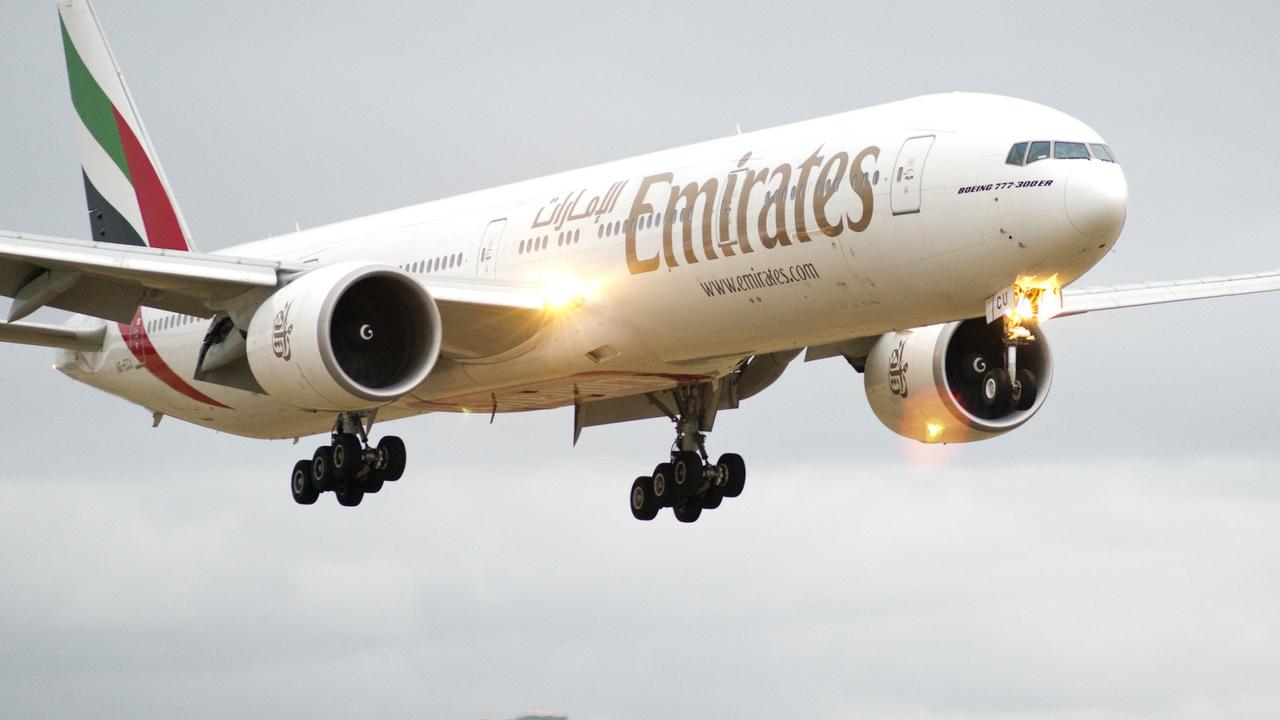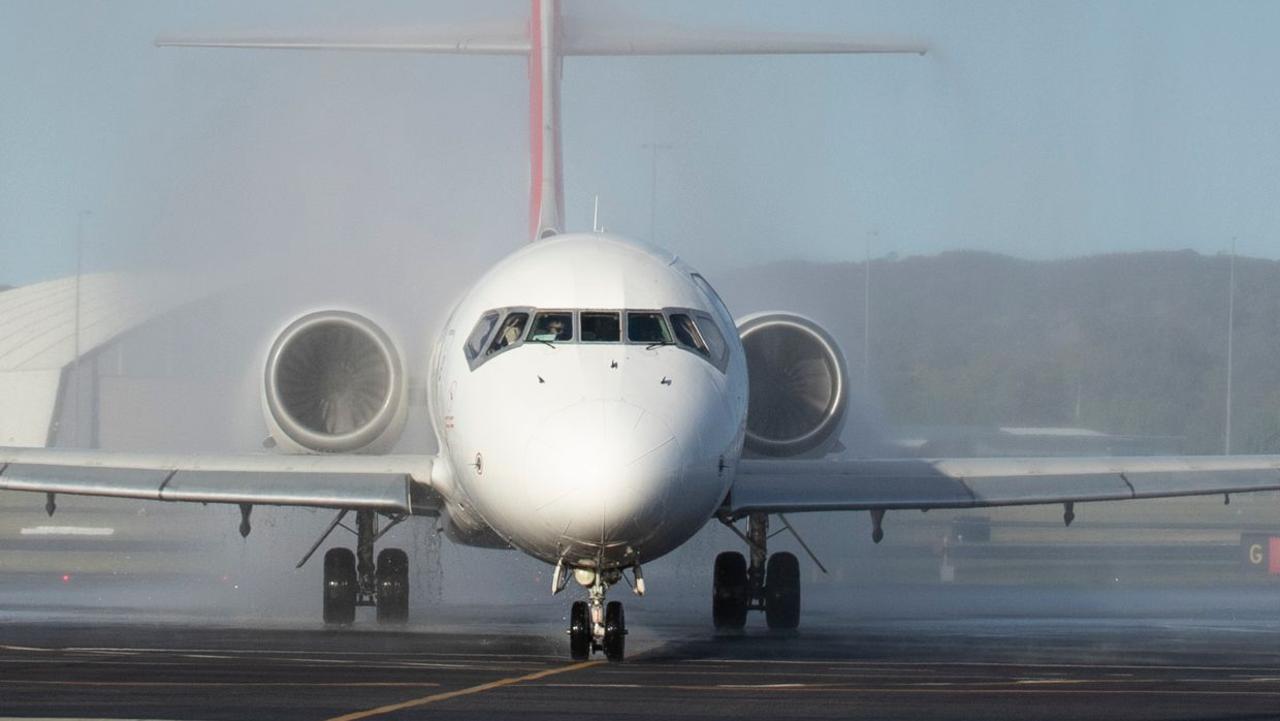Major change at Australian airports starts this week
Australia’s airlines have united to rid planes of this frustrating passenger behaviour for good. And it starts on flights this week.
All domestic passengers can expect to have their cabin bags weighed before boarding from this week as Australian airlines present a united front in ridding oversized baggage from aircraft cabins.
Virgin Australia says from tomorrow, passengers should expect to have their carry-on bags weighed at various points in their journey, including at the check-in desk and the boarding gate, to ensure they comply with the 7kg limit.
Passengers with bags weighing more than 7kg will have to stow them in the cargo hold with other checked luggage.
It brings Virgin Australia in line with rival Qantas, which last week announced it would start weighing bags to enforce its 7kg cabin baggage rules.
Low-cost carriers Tigerair Australia and Jetstar already use scales to crack down on cabin baggage cheats.
The whole-industry approach to stop oversized hand luggage is being supported by the Civil Aviation Safety Authority and applies to domestic passengers.
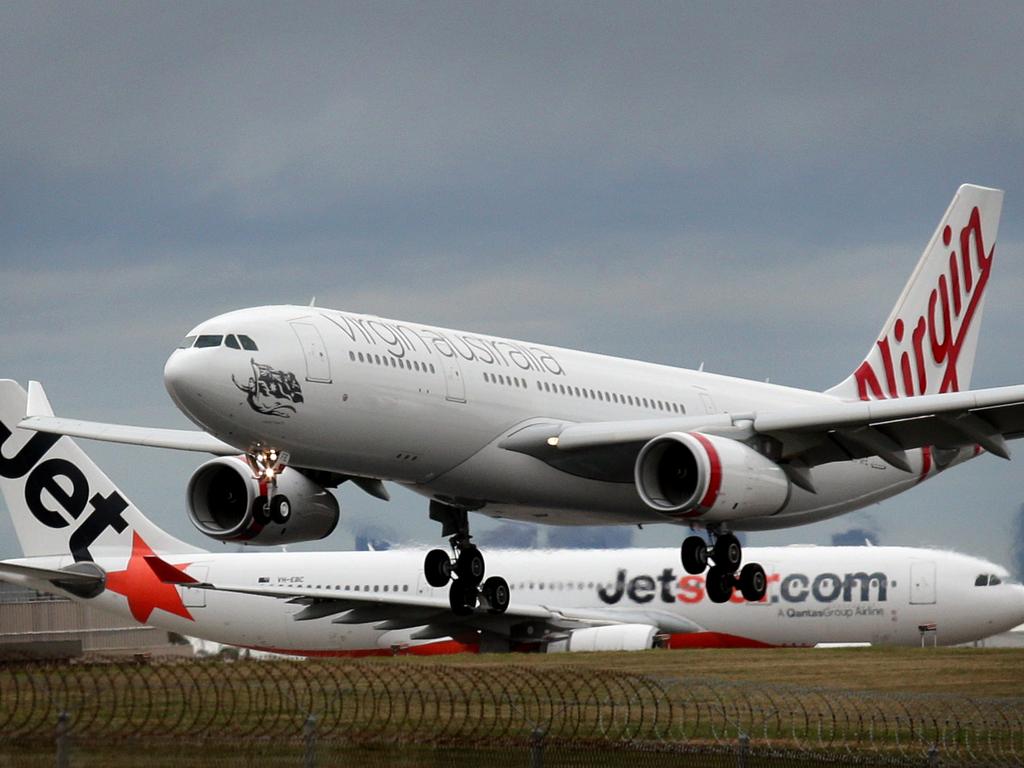
While passengers can expect to have bags weighed from tomorrow, both Virgin Australia and Qantas will boost their resources at airport terminals from next Monday, December 17 as the crackdown comes into full effect.
Virgin Australia said it was enforcing the rules as increasingly heavy carry-on bags were causing injuries to passengers and cabin crew and holding up flights as passengers jostled to find space in cramped overhead compartments.
“As an industry, we’re seeing many passengers trying to bring everything but the kitchen sink on domestic flights, which is causing flight delays as well as safety issues for cabin crew, ground crew and passengers,” Virgin Australia general manager of ground operations Paul Woosnam said in a statement to news.com.au.
“We’re seeing injuries to our cabin crew caused by closing overhead lockers full of heavy baggage, shifting bags in overhead lockers to assist guests finding space and assisting passengers with lifting their bags into the overhead compartments.
“Some of these injuries can be quite significant and may result in the crew member being unable to work for a period of time.
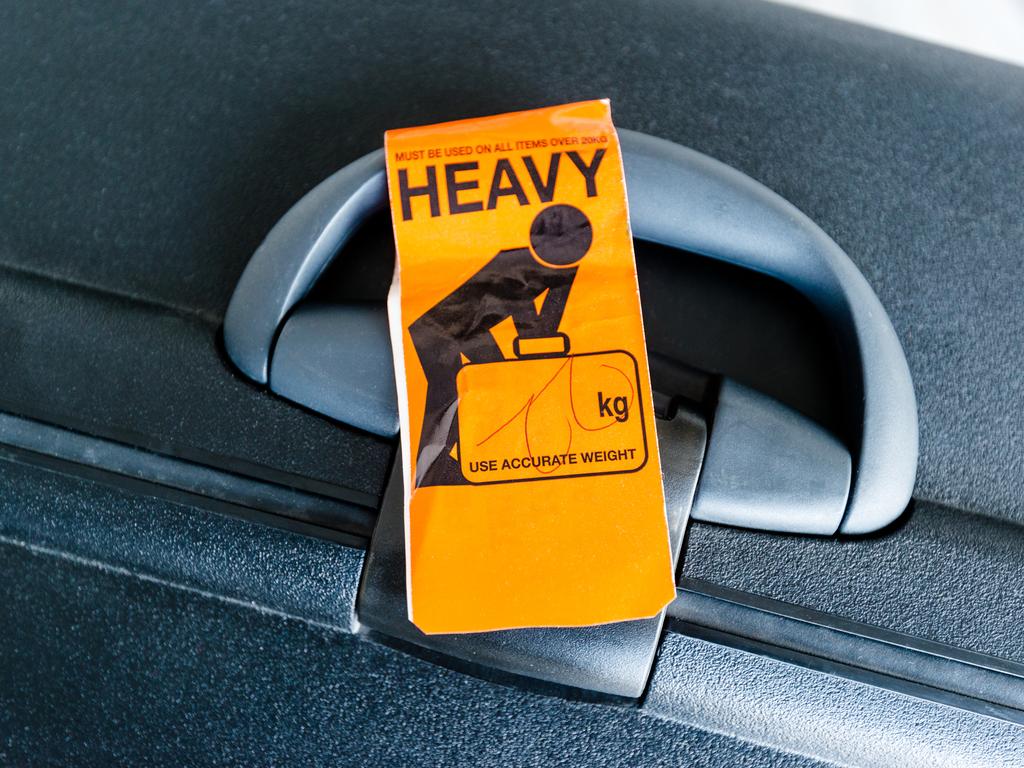
“This is preventable if all passengers adhered to the baggage limits and guidelines, and from the customers we’ve spoken to, we know they’re in favour of our renewed focus on cabin baggage.”
Frustrated passengers have asked Virgin Australia to do more about passengers who ignored carry-on rules.
Mr Woosnam said “more and more” flights were being delayed due to issues around carry-on baggage.
“Christmas is an incredibly busy time of year for us so we do encourage anyone travelling over the holiday period and beyond to familiarise themselves with the carry-on allowances to help get them to their destination safely and on time,” he said.
Virgin Australia offers a baggage allowance of up to 30kg for each passenger, which includes a 23kg checked bag, plus 7kg of carry-on baggage. Passengers can also board with laptop bags, handbags or suit bags in addition to the 7kg limit.
Qantas passengers can board with a maximum of two carry-on baggage pieces, neither of which can be over 7kg. Qantas has started moving oversized carry-on bags to the cargo hold.
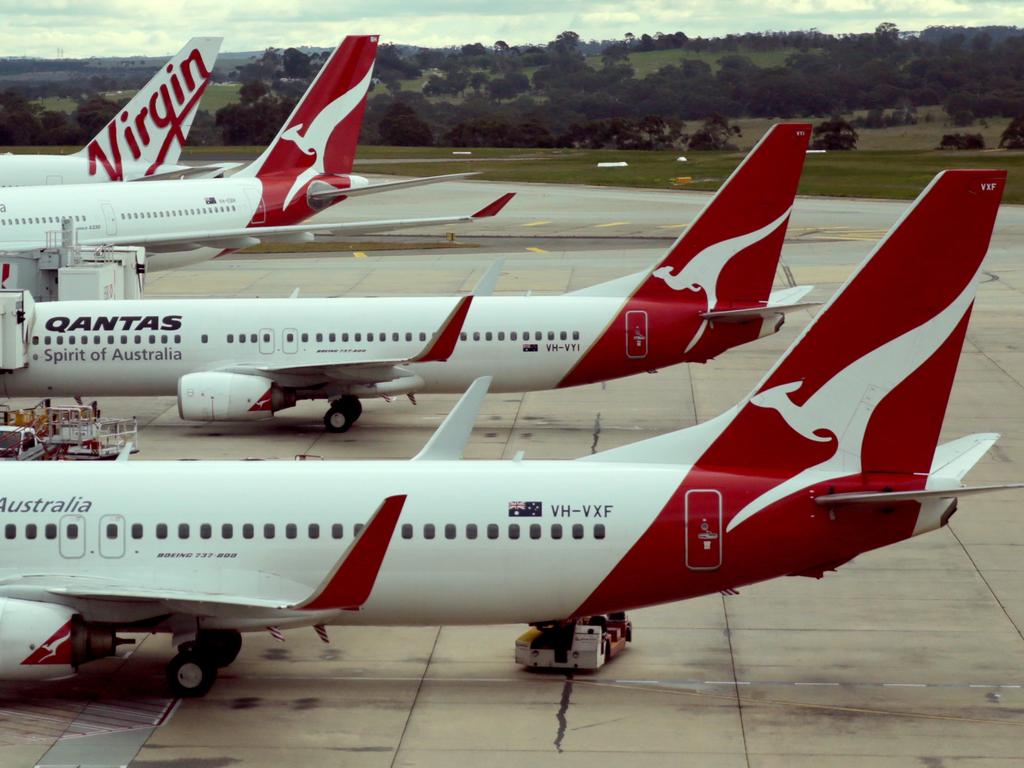
“Qantas offers the most generous amount of cabin baggage of any Australian airline and we know customers like the convenience of not having to check in luggage. But we’re getting feedback from regular flyers who say all customers need to be reminded about how much luggage they can take on-board,” a Qantas spokesman told news.com.au.
“So we’re renewing our focus to keep cabin baggage within the allowances and to ensure everyone has their fair share of space on-board.
“Ensuring that allowances are being followed will also help reduce delays during the boarding process and ensure an on-time departure.
“Cabin bins that are too full or bags that are too heavy can cause a safety risk for both customers and crew.”
Australia’s budget airlines have already been weighing passengers’ carry-on baggage before boarding.
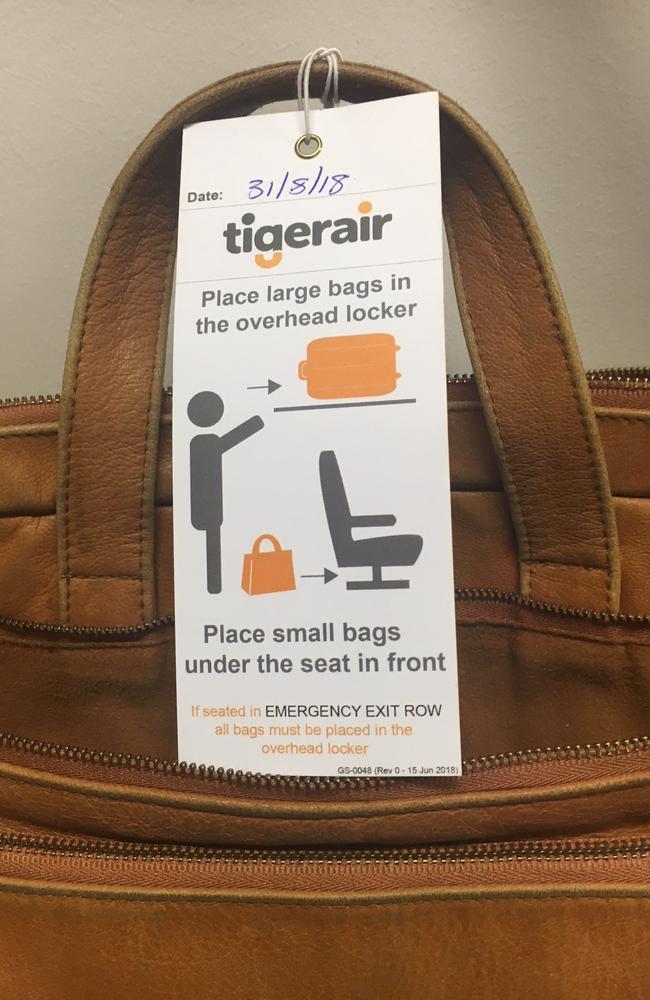
Tigerair Australia is continuing with a trial program that uses a tag system to ensure all bags have been weighed and cleared for boarding, meaning no one can slip onto a plane without their bags being checked for weight.
The current cabin baggage limit for Tigerair is 7kg per customer, with the option of upgrading to cabin+, which allows up to 12kg of cabin baggage.
“(The tag trial) not only highlights to our crew that luggage has been checked before boarding, but helps to educate our customers on where to stow their bags when they board their flight,” a Tigerair spokesperson told news.com.au in September.
“The trial has already been very successful in relieving the common issue of congestion in the cabin overhead lockers by creating more awareness around customers being able to store their bags securely under the seat in front of them.
Jetstar allows 7kg of carry-on luggage for Economy Starter, Starter Plus and Starter Max passengers, who can pay to “top up” their allowance with an extra 3kg.
TOUGH NEW RULES FOR PASSENGERS
The industry crackdown on carry-on baggage comes at the end of a year that’s seen game-changing new rules and restrictions impacting airline passengers.
In May, the Australian Government announced it would no longer allow people to wear glasses in passport photos.
With only very few exceptions, the new rule banned glasses in photos taken after July 1, with vision impairment no longer considered an acceptable reason for exemption.
The Australian Passport Office said the new rule “further strengthen the integrity of the Australian passport”.
“Research has shown that glasses adversely affect passport facial matching. Matching is more accurate without glasses,” the department said.
Then in June, the government announced new rules about how much powder product passengers could have in their carry-on baggage on international flights, and on domestic flights leaving international terminals.
Passengers now have to present their pressed and loose powder products separately at airport security, similar to the approach taken with liquids, aerosols and gels.
Powders considered “inorganic” — such as salt, talcum powders, powdered deodorant and cleaning products — cannot be more than 350g in total (or 350mL).
The new rule appeared to have been prompted by a thwarted bomb plot on an Etihad flight from Sydney in July last year.
But in better news for flyers, a new security screening trial at Melbourne Airport may mean passengers don’t have to present their liquids and gels, or their laptop, for separate screening anymore.
New technology being trialled at Melbourne Airport’s T4 domestic terminal takes a CT scan of passengers’ cabin luggage to produce a three-dimentional image of what’s inside, which is a big step up from the current use of 2D imaging.
This means it’s no longer necessary for passengers to pull their liquids, gels, laptops and large electronic items from their carry-on bags, which may speed up the queues at the security area.


